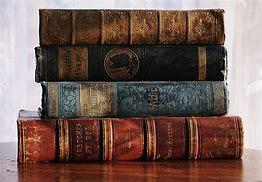Exploring the World of Literature
Literature is a vast and diverse field that encompasses a wide range of written works, from classic novels and poetry to contemporary fiction and non-fiction. It offers a window into different cultures, experiences, and perspectives, allowing readers to explore and understand the world in new and profound ways.
The Importance of Literature
Literature plays a crucial role in society. It preserves the history, culture, and traditions of different civilizations, providing a record of human experiences and ideas. Through literature, we can gain insights into the lives and thoughts of people from different times and places, fostering empathy and understanding.
Genres of Literature
There are many genres of literature, each with its own unique characteristics and appeal. Some of the most popular genres include:
-
Fiction: This genre includes novels and short stories that tell imagined stories. Examples include J.K. Rowling's "Harry Potter" series and George Orwell's "1984."
-
Non-Fiction: These works are based on real events and facts. Biographies, memoirs, and essays fall under this category. Examples include Michelle Obama's "Becoming" and Malala Yousafzai's "I Am Malala."
-
Poetry: Poetry uses rhythmic and often metaphorical language to evoke emotions and convey ideas. Famous poets include William Wordsworth and Emily Dickinson.
-
Drama: Plays written for performance on stage fall into this category. Notable playwrights include William Shakespeare and Arthur Miller.
Benefits of Reading Literature
Reading literature has numerous benefits. It enhances language and writing skills, improves cognitive functions, and boosts creativity. Literature also helps develop critical thinking by encouraging readers to analyze and interpret complex narratives and themes.
Classic vs. Contemporary Literature
Classic literature refers to works that have stood the test of time and are recognized for their artistic merit and cultural significance. Examples include "Pride and Prejudice" by Jane Austen and "Moby-Dick" by Herman Melville. These works often explore universal themes that remain relevant across generations.
Contemporary literature, on the other hand, reflects current issues and modern life. Authors like Chimamanda Ngozi Adichie and Haruki Murakami address contemporary themes such as identity, globalization, and technology, making their works accessible and relatable to today's readers.
Literature as a Reflection of Society
Literature often mirrors the society in which it is created. It can highlight social issues, challenge prevailing norms, and inspire change. For instance, Charles Dickens' "A Tale of Two Cities" depicts the harsh realities of the French Revolution, while Harper Lee's "To Kill a Mockingbird" addresses racial injustice in America.
Conclusion
Literature is more than just words on a page; it is a powerful tool for communication, education, and reflection. By exploring different genres and authors, readers can embark on countless journeys through time and space, gaining new insights and perspectives along the way. Whether through the timeless tales of classic literature or the vibrant voices of contemporary works, literature continues to enrich our lives and broaden our horizons.

